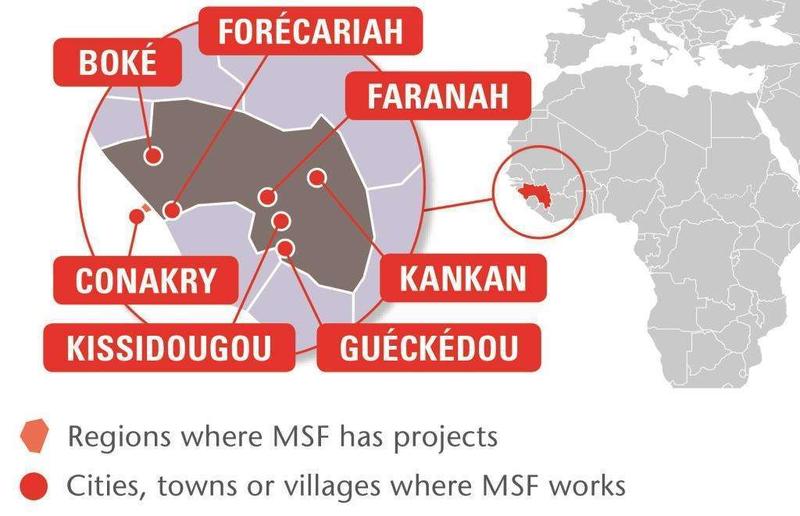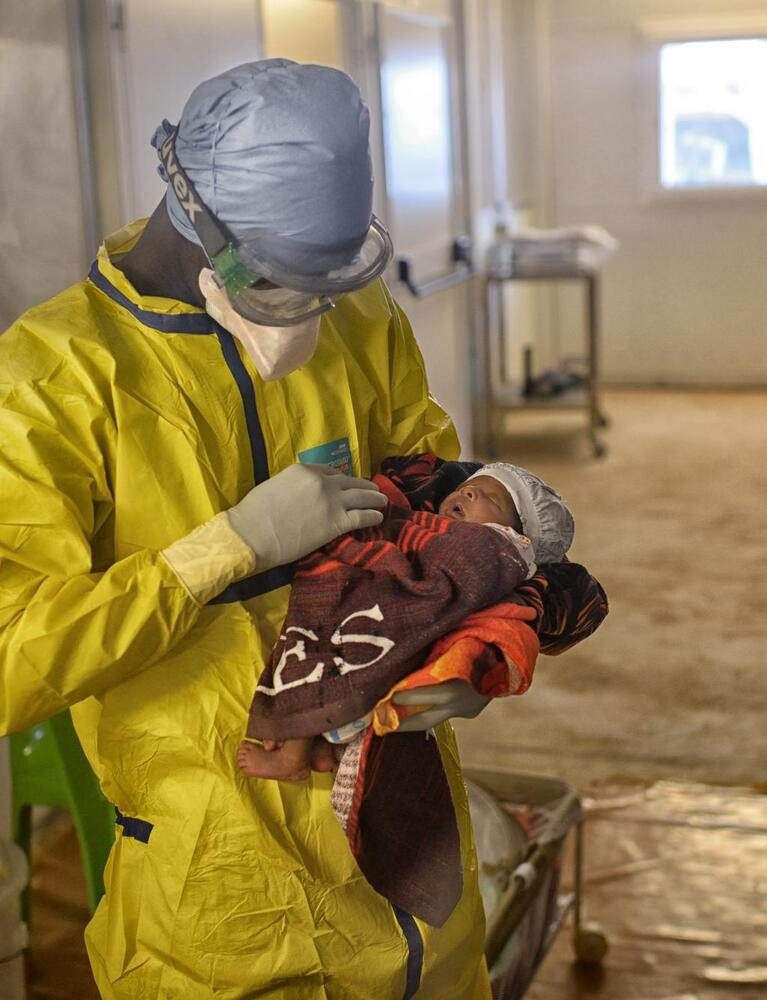Despite an abundance of mineral wealth, Guinea's people are among the poorest in West Africa.

The country has rich deposits of bauxite, diamonds and gold, but due to political instability and a lack of infrastructure, little of this wealth reaches Guinea's population.
Ruled by strong-arm leaders for much of the time since its independence from France in 1958, Guinea has been seen as a bulwark against instability in neighbouring Liberia, Sierra Leone and Ivory Coast. However it has also been implicated in the conflicts that have ravaged the region.
Along with Sierra Leone and Liberia, Guinea was pushed to the forefront of the world stage in 2014 as the devastating Ebola outbreak spiralled out of control - originating in Guinea itself.
Médecins Sans Frontières/Doctors Without Borders (MSF) first began working in the country in 1984.
[[Country-Facts]]
MSF's work in Guinea: 2015
MSF continued to respond to the Ebola epidemic in Guinea, supporting Ebola management centres (EMCs) and assisting with safe burials, health promotion, community surveillance and contact tracing.
A year into the outbreak, it was evident that new ways of fighting the disease were necessary, and MSF was involved in research studies to find them.
These included a vaccine trial targeting frontline workers in the capital Conakry, and the towns of Forécariah and Coyah, and people who had been in contact with new confirmed cases.
[[nid:420]]
Ebola response
We also started an infection study, looking at which bodily fluids are more at risk of transmitting the disease and for how long after recovery.
Between January and March, we set up a rapid-response mobile team that could travel to wherever new Ebola cases were reported, quickly analyse the needs and propose an adapted approach. This team was deployed twice, to Faranah and Kissidougou.
In April, the EMC in Guéckédou was closed and what was formerly a Ministry of Health transit centre (set up with the support of MSF) in Forécariah was converted into an EMC by the French Red Cross.
In July, we opened new EMCs in Nongo, an area of Conakry, and the city of Boké. The centre in Nongo had capacity for 72 beds, and activities were transferred to this new site from Donka hospital.
The end of the Ebola outbreak in Guinea was declared on 29 December (however, new cases of Ebola were declared in Guinea in March 2016).
Since it started in March 2014, there had been 3,804 reported cases and 2,536 confirmed deaths, of which 110 were health workers.
Adherence to HIV treatment
The Ebola epidemic had acute consequences for the people in Guinea living with HIV, who need uninterrupted, life-long care. Many patients abandoned their treatment because they feared going to health facilities and contracting Ebola.
MSF addressed this issue and sought to mitigate the risk of infection by implementing a six-month refill strategy (R6M) between April and June 2014.
This meant stable patients needed to come only twice a year to pick up their medicine. Thanks to this strategy, over 90 per cent of HIV patients under R6M were still under treatment by March 2015; other health providers reported significantly lower adherence.
Find out more in our 2015 International Activity Report




